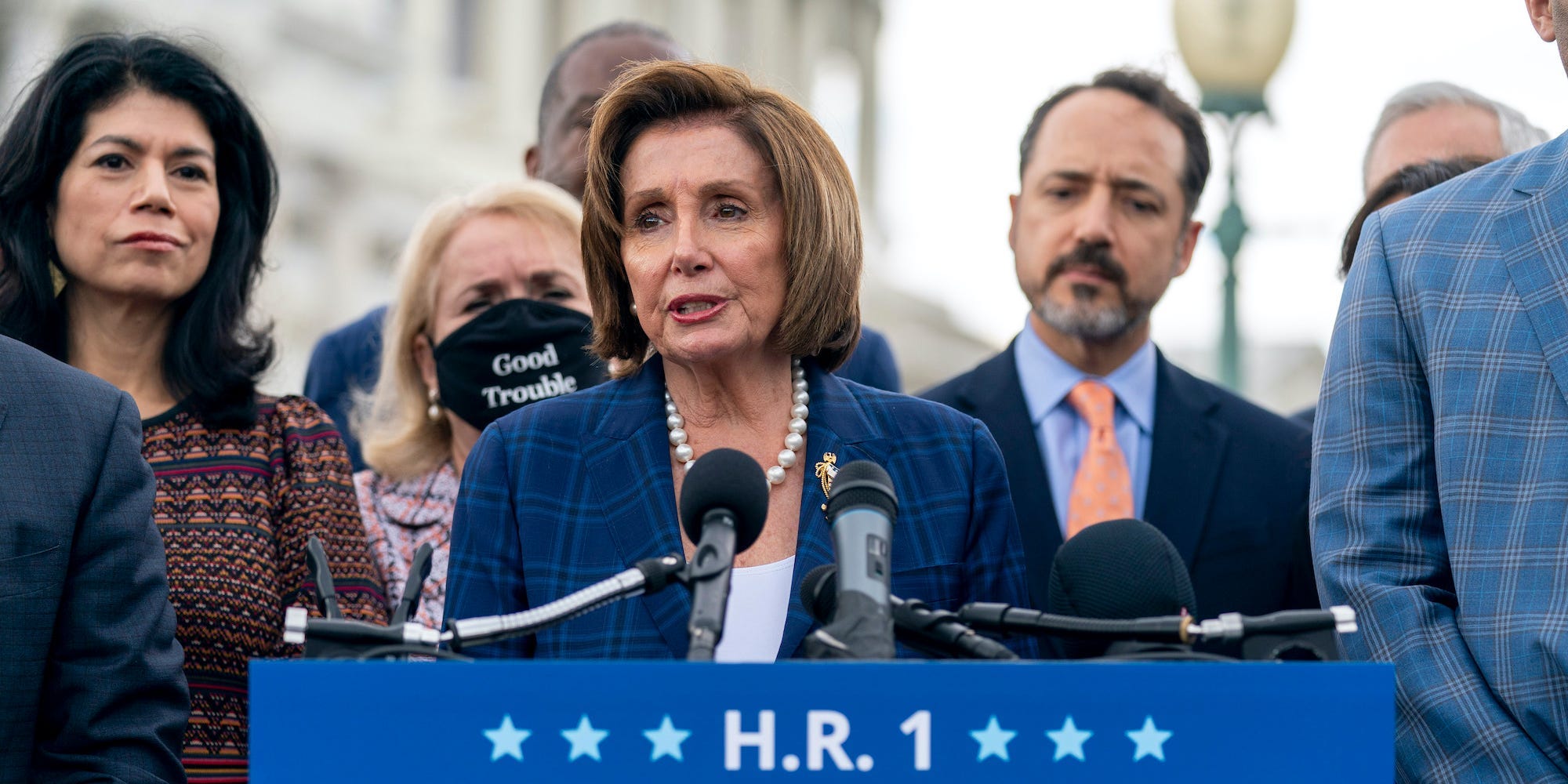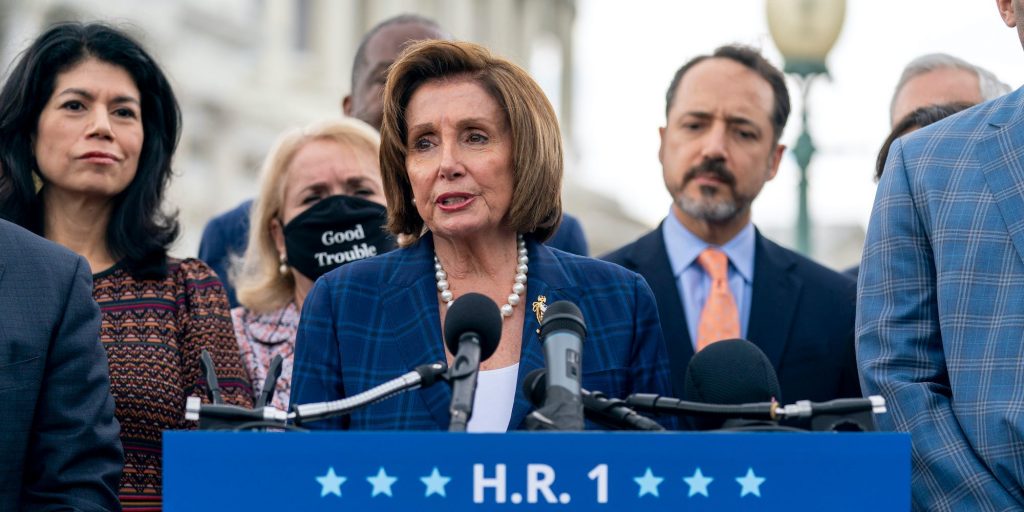
AP Photo/Andrew Harnik
- Senate Republicans on Tuesday blocked the passage of Democrats' flagship voting rights bill.
- S.1. includes massive expansions of voting rights and campaign finance overhauls.
- With S. 1 filibustered and GOP lawmakers unwilling to accept a "slimmed down" version of the bill, the path forward on voting rights is unclear.
- See more stories on Insider's business page.
Senate Republicans on Tuesday blocked the passage of the For The People Act, Democrats' flagship bill expanding voting rights and overhauling campaign finance and ethics laws, in a widely-expected filibuster.
With a 50-50 vote, the Senate fell short of the three-fifths majority required to invoke cloture on the motion to proceed with the bill. All Senate Democrats voted in favor and all Republicans moved to block the bill from advancing further.
Sen. Joe Manchin of West Virginia, a key moderate senator who did not cosponsor the measure and came out against the bill in its current form in early June, ended up voting yes on the motion to advance to debate, fulfilling Democrats' hopes for a united front but falling short of the 60 votes that were needed to proceed.
The bill, known as H.R. 1 in the House and S. 1 in the Senate, was initially introduced largely as a messaging bill – which has the goal of signaling a party's position on an issue – at the beginning of the 116th Congress in 2019.
But passing the bill became a top priority for congressional Democratic leaders and prominent progressive and democracy reform groups against the backdrop of GOP-controlled state legislatures passing dozens of bills that tighten voting rules, impose new criminal penalties on election officials, and give partisan legislatures more control over the voting process.
The over 800-page legislation includes expansions of voter registration opportunities, mandates mail-in and early voting, softens voter ID laws, and bans partisan gerrymandering in redistricting. It also includes major campaign finance reforms, like strengthening disclosure laws and creating a public matching system for federal candidates, and beefs up ethics laws for federal officials and lobbyists.
In addition to opposition from Republicans, who denounced the measure as a partisan power grab that would weaken election integrity, multiple election experts and officials raised concerns that the bill imposed unrealistic deadlines and mandates on election officials.
It also failed to address the emerging trend of GOP-controlled legislators passing laws that give them more control over the election administration and vote-counting process. To that end, a group of Democratic lawmakers on Monday introduced a proposal that would prevent local election officials from being removed from their positions without cause and make harassment of an election worker a federal crime.
Read more: Capitol Hill staffers say they use marijuana freely even though it's still illegal for federal workers
The week before the vote, Manchin proposed a slimmed-down, "compromise" version of S. 1 that included requiring voter identification nationwide, enacting automatic voter registration, mandating 15 days of early voting, making Election Day a national holiday, and curtailing partisan gerrymandering by requiring congressional redistricting to be done with computer software.
A Monmouth University Poll released Monday found broad public support for elements of Manchin's compromise, with 80% of Americans expressing support for mandatory voter ID and 69% in favor of expanding in-person early voting and mail-in voting nationwide.
But GOP Senate leaders threw cold water on the proposal, with Senate Minority Leader Mitch McConnell saying that it "retains S1's rotten core: an assault on the fundamental idea that states, not the federal government, should decide how to run their own elections."
Now, with S. 1 filibustered and Republicans unwilling to accept Manchin's version of the bill, the congressional path forward on voting rights is unclear. Both Manchin and another key moderate lawmaker, Sen. Krysten Sinema, are firmly opposed to eliminating the filibuster, making for a tough uphill battle on any legislation.
The failure of S. 1 also poses a major test for President Joe Biden, who has pledged to "fight like heck" to pass the bill, and for Vice President Kamala Harris, who recently took on the tough assignment of leading the administration's efforts on voting rights and presided over Tuesday's debate and vote.

